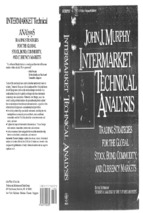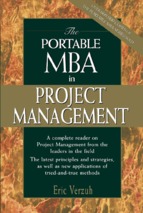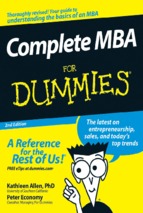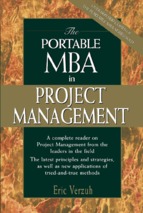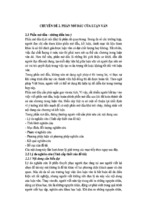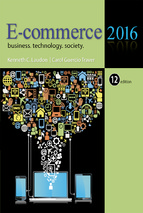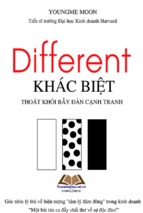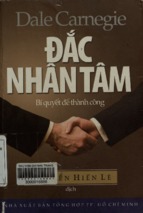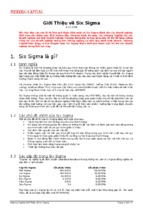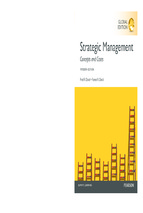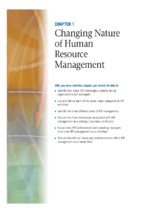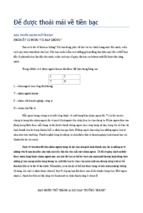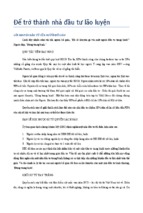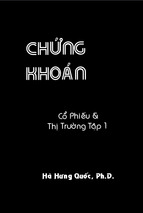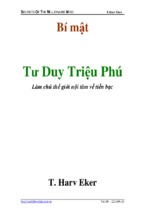US - China relations: China policy on Capitol Hill
U.S.–China Relations
With China’s rapid ascendance to great power status, the U.S.–China relationship has become one of the most important international relationships in
the world today. This book explores relations between the U.S. and China,
focusing in particular on China policy-making in the U.S. Congress, which
has been unusually active in the development of this relationship. Based on
detailed analysis of China bills introduced in Congress over the past three
decades, it provides detailed analysis of how Congressional policy-making
works in practice, and explores the most controversial issues in U.S.–China
relations: Taiwan, trade and human rights. It considers the voting patterns
and party divisions on these issues, showing that liberals and conservatives
often form an alliance concerning China because China’s authoritarian
regime, human rights problems, soaring trade surplus with the U.S and rising
military power attract criticism from both camps. It also argues that congressional committees, bicameralism and presidential veto make it virtually
impossible for Congress to legislate on China, despite its intense preferences,
and therefore Congress often turns to informal—but no less effective—means
to exert influence on China policy, such as framing public opinion and generating situations that result in anticipated reactions by the executive branch
or Beijing.
Tao Xie is Assistant Professor at the American Studies Centre, Beijing Foreign Studies University, China. He holds a Ph.D. in political science. His
primary research interests are U.S. Congress and American electoral
behavior.
Routledge Contemporary China Series
Nationalism, Democracy and National Integration in China
Leong Liew and Wang Shaoguang
Hong Kong’s Tortuous Democratization
A comparative analysis
Ming Sing
China’s Business Reforms
Institutional challenges in a globalised economy
Edited by Russell Smyth and Cherrie Zhu
Challenges for China’s Development
An enterprise perspective
Edited by David H. Brown and Alasdair MacBean
New Crime in China
Public order and human rights
Ron Keith and Zhiqiu Lin
Non-Governmental Organizations in Contemporary China
Paving the way to civil society?
Qiusha Ma
Globalization and the Chinese City
Fulong Wu
The Politics of China’s Accession to the World Trade Organization
The dragon goes global
Hui Feng
Narrating China
Jia Pingwa and his fictional world
Yiyan Wang
Sex, Science and Morality in China
Joanne McMillan
Politics in China Since 1949
Legitimizing authoritarian rule
Robert Weatherley
International Human Resource Management in Chinese Multinationals
Jie Shen and Vincent Edwards
Unemployment in China
Economy, human resources and labour markets
Edited by Grace Lee and Malcolm Warner
China and Africa
Engagement and compromise
Ian Taylor
Gender and Education in China
Gender discourses and women’s schooling in the early twentieth century
Paul J. Bailey
SARS
Reception and interpretation in three Chinese cities
Edited by Deborah Davis and Helen Siu
Human Security and the Chinese State
Historical transformations and the modern quest for sovereignty
Robert E. Bedeski
Gender and Work in Urban China
Women workers of the unlucky generation
Liu Jieyu
China’s State Enterprise Reform
From Marx to the market
John Hassard, Jackie Sheehan, Meixiang Zhou, Jane Terpstra-Tong and
Jonathan Morris
Cultural Heritage Management in China
Preserving the cities of the Pearl River Delta
Edited by Hilary du Cros and Yok-shiu F. Lee
Paying for Progress
Public finance, human welfare and inequality in China
Edited by Vivienne Shue and Christine Wong
China’s Foreign Trade Policy
The new constituencies
Edited by Ka Zeng
Hong Kong, China
Learning to belong to a nation
Gordon Mathews, Tai-lok Lui and Eric Kit-wai Ma
China Turns to Multilateralism
Foreign policy and regional security
Edited by Guoguang Wu and Helen Lansdowne
Tourism and Tibetan Culture in Transition
A place called Shangrila
Åshild Kolås
China’s Emerging Cities
The making of new urbanism
Edited by Fulong Wu
China-US Relations Transformed
Perceptions and strategic interactions
Edited by Suisheng Zhao
The Chinese Party-State in the 21st Century
Adaptation and the reinvention of legitimacy
Edited by André Laliberté and Marc Lanteigne
Political Change in Macao
Sonny Shiu-Hing Lo
China’s Energy Geopolitics
The Shanghai Cooperation Organization and Central Asia
Thrassy N. Marketos
Regime legitimacy in contemporary China
Institutional change and stability
Edited by Thomas Heberer and Gunter Schubert
U.S.–China Relations
China policy on Capitol Hill
Tao Xie
U.S.–China Relations
China Policy on Capitol Hill
Tao Xie
First published 2009 by Routledge
2 Park Square, Milton Park, Abingdon, Oxon OX14 4RN
Simultaneously published in the USA and Canada
by Routledge
270 Madison Avenue, New York, NY 10016
Routledge is an imprint of the Taylor & Francis Group,
an informa business
This edition published in the Taylor & Francis e-Library, 2008.
“To purchase your own copy of this or any of Taylor & Francis or Routledge’s
collection of thousands of eBooks please go to www.eBookstore.tandf.co.uk.”
© 2009 Tao Xie
All rights reserved. No part of this book may be reprinted or
reproduced or utilized in any form or by any electronic,
mechanical, or other means, now known or hereafter
invented, including photocopying and recording, or in any
information storage or retrieval system, without permission in
writing from the publishers.
British Library Cataloguing in Publication Data
A catalogue record for this book is available from the British Library
Library of Congress Cataloging in Publication Data
Tao, Xie, 1973–
U.S.–China relations : China policy on Capitol Hill / Tao Xie.
p. cm—(Routledge contemporary China series)
Includes bibliographical references and index.
1. United States—Foreign relations—China. 2. China—Foreign
relations—United States. 3. United States—Foreign relations—1945–
1989. 4. United States—Foreign relations—1989-. 5. United States.
Congress—Decision making. 6. Taiwan—Strategic aspects.
7. United States—Commerce—China. 8. China—Commerce—
United States. 9. Human rights—China. I. Title. II. Title: United
States—China relations.
E183.8.C5T36 2008
327.73051—dc22
2008014023
ISBN 0-203-89014-0 Master e-book ISBN
ISBN10: 0–415–77688–0 (hbk)
ISBN10: 0–203–89014–0 (ebk)
ISBN13: 978–0–415–77688–2 (hbk)
ISBN13: 978–0–203–89014–1 (ebk)
To Zhang Can
Contents
List of figures
List of tables
Acknowledgments
Introduction
Congress and foreign policy 2
Why China? 5
Contributions of the book 9
Structure of the book 10
xi
xiii
xv
1
1
The new institutionalism and legislative behavior
The new institutionalism 13
Determinants of roll call voting on foreign policy 19
Methodology 23
13
2
Congressional efforts to punish China
Collection of China bills 27
Number and nature of China bills 29
What influences the ebb and flow of China bills? 34
26
3
Effects of congressional activism on China policy
Bicameralism 43
Congressional committees 48
Presidential veto 50
More bark than bite? 52
Why so many China bills? 54
Does Congress matter in China policy? 55
43
4
Congress and U.S.–China trade relations
Booming economic ties 60
60
x
Contents
Congress and U.S.–China Trade 63
Legislative battle over PNTR 65
78
5
Congress and Taiwan
Historical ties between Congress and Taiwan 79
Congressional attempts to enhance U.S.–Taiwan relations 82
6
Congress and China’s human rights
Before Tiananmen: China as the exception 101
Tiananmen: the dividing line 104
MFN renewal and congressional efforts to change human rights
in China 108
100
7
Beyond the case of China
Selection of cases 123
Theoretical expectations 129
122
8
Conclusion
Legislative institutions and their impact on China policy 142
The international environment and Congress’s China
policy 144
Determinants of roll call voting on foreign policy 145
Policy implications 149
A look into the future 154
142
Appendix: Sources
Source of China bills and coding scheme 157
Sources of other quantitative data 157
157
Notes
Bibliography
Index
161
177
199
List of figures
2.1 Classification of China bills (including amendments),
1973–2006
2.2 Time trend of China bills (including amendments),
1973–2006
2.3 Favorability ratings of China on 10-point scale, 1954–2001
2.4 Favorability ratings of China on four-category scale,
1977–2006
3.1 House–Senate ratios for China bills and bills in general
(excluding amendments), 93rd–109th Congresses
3.2 Number of China bills (excluding amendments) by
policy type and chamber, 1973–2006
5.1 Time trend of Taiwan bills introduced in each chamber,
1973–2006
6.1 Bills concerning China’s human rights, 1989–2006
6.2 Time trend of bills relating to China’s MFN status,
1973–2006
7.1 U.S. trade deficit with Japan, 1962–2006
32
33
37
38
44
45
82
106
109
125
List of tables
2.1
2.2
2.3
2.4
3.1
3.2
3.3
4.1
4.2
4.3
4.4
5.1
5.2
5.3
5.4
5.5
5.6
5.7
6.1
6.2
House China bills by policy and type, 1973–2006
Senate China bills by policy and type, 1973–2006
Determinants of the number of China bills (excluding
amendments) introduced in the House, 1973–2006
Determinants of the number of China bills (excluding
amendments) introduced in the Senate, 1973–2006
Frequency of the number of China bills (excluding
amendments) by chief sponsor and chamber, 1973–2006
Members of Congress who introduced ten or more
China bills (excluding amendments), 1973–2006
Freestanding China bills enacted into law, 1973–2006
U.S.–China trade in goods, 1973–2006
U.S. imports of selected commodities from China in
1989–2005
Logit analysis of the House vote on HR 4444
Increases in probabilities associated with one
standard deviation increase in independent variables
(HR 4444)
House roll call votes on the Taiwan Relations Act
Senate roll call votes on the Taiwan Relations Act
U.S. arms sales to Taiwan and Taiwan’s ranking
among U.S. arms sales to foreign countries
Logit analysis of the House vote on HR 2386
Increases in probabilities associated with one
standard deviation increase in independent variables
(HR 2386)
Logit analysis of the House vote on HR 1838
Increases in probabilities associated with one
standard deviation increase in independent variables (HR 1838)
House roll call votes on joint resolutions to
disapprove of China’s MFN, 1990–2001
Logit analysis of House votes to disapprove of
China’s MFN under President Bush
29
31
39
41
46
47
53
61
62
72
73
85
86
89
92
92
94
95
110
115
xiv
List of tables
6.3
Increases in probabilities associated with one
standard deviation increase in independent variables (votes
under Bush)
6.4 Logit analysis of House votes to disapprove of
China’s MFN under President Clinton
6.5 Increases in probabilities associated with one
standard deviation increase in independent variables (votes
under Clinton)
7.1 Total U.S. trade and deficit with Japan, Canada, and
Mexico, 1985–2006
7.2 U.S.–Japan trade and automotive deficit, 1986–2006
7.3 Total U.S. trade and deficit with Hungary, Romania,
and Vietnam
7.4 House roll call votes on trade and MFN extension for
selected countries
7.5 Logit analysis of House roll call votes on trade with
Japan, Canada, and Mexico
7.6 Increases in probabilities associated with one
standard deviation increase in independent variables (votes on
Japan, Canada, and Mexico)
7.7 Logit analysis of House votes on extension of MFN
to Romania, Hungary, and Vietnam
7.8 Increases in probabilities associated with one
standard deviation increase in independent variables (votes on
MFN extension to Romania, Hungary, and Vietnam)
A.1 Examples of coding of China bills
115
117
118
124
126
130
132
133
134
138
139
158
Acknowledgments
In the process of researching the book, I have accumulated an enormous debt
to a number of individuals. Without their encouragement, support, advice,
and critique, the book would never have evolved into what it is today.
Jeff Jenkins offered a number of penetrating comments. Without his input,
the book would have been much less alert to the complexities of congressional structures and procedures. The book also benefited from Victor Shih’s
extensive knowledge of U.S.–China relations and international relations.
Dennis Chong generously supported my training in quantitative methods.
More than that, had it not been for his unfailing encouragement, I would
have quit being a political scientist a long time ago. Sean Gailmard kindly
helped me tackle many methodological questions. Each in his own way, John
Bennett and Chris Bray made my life at Northwestern University more
enjoyable.
To Benjamin I. Page, I owe the most intellectual debt. Without his support,
I would probably have not embarked on the project in the first place. His
enthusiasm has sustained me throughout research and writing. He supervised
the project from the beginning to the end, bringing to bear his enormous
knowledge of American politics and guiding me through the art of academic
writing. He certainly exemplifies the profound impact that a professor can
have on students.
Since we first met back in 2002, Jordan Jay Hillman has been an intellectual
mentor and a fatherly figure to me. In addition to sharpening my thinking on
many topics over numerous lunches which he generously paid for, he also
invited me to have each Hanukkah and Passover dinner with his family. When
I look back at the six years of doctoral study in the U.S., I am always grateful
to Jay and his family.
It was Professor Mei Renyi who inspired me to study American politics
when I was a graduate student in Beijing ten years ago. Without his unwavering support, I would not have decided to pursue a doctorate. His insights into
American politics have been a constant source of research ideas.
Many former and current graduate students at Northwestern University
helped me in a number of ways. In addition to livening up my social life,
Julia Rabinovich was a great source of research ideas. Conservations with
xvi
Acknowledgments
Jean-François Godbout often ended up producing some fascinating reflections on my own research. Birol Baskan and I often discussed a wide range of
topics over a cup of coffee. Jiangnan Zhu, Kai Zeng, and Qi Zhang enriched
my intellectual as well as culinary life.
Special thanks go to librarians at the Government Publications Section of
Northwestern University Library, particularly Jiuping Chen, Beth Clausen,
Ann Janda, Kathleen Murphy, Louis Takacs. Because of their smiles and
patience, digging through government documents became a more pleasant
process. I especially want to thank Jiuping, who never complained about my
frequent and unannounced visits to his office.
The Graduate School at Northwestern University provided a Graduate
Research Grant, which helped cover the cost of collecting China bills. The
School of English and International Studies at Beijing Foreign Studies University provides an ideal environment for a junior faculty. However, neither of
the two institutions bears any responsibility for the views expressed in the
book.
Many thanks are also due the editorial staff at Routledge. Peter Sowden
convinced me of the importance of the project and encouraged me to pursue
it further. Tom Bates was instrumental in shaping the book as it stands
now. The two anonymous reviewers of the manuscript offered a number of
trenchant comments which improved the quality of the book.
A short version of Chapter 4 was published in American Politics Research,
and a different version of Chapters 2–3 was published in Journal of Contemporary China. I thank the two journals for granting me the right to reprint
portions of the two articles.
My father was deprived of a good education, but insisted that his son get
the best education possible. Without his sacrifice, devotion, and love, I would
not have accomplished what I have.
Zhang Can has been a really good sport about being the wife of a junior
faculty. Without her love, care, and sacrifice, I would not have been able to
finish the project on time. There is no better way to thank her than to dedicate
my first book to her.
Introduction
Only in the case of Communist China has the Congress played a major role
over a long period of time to confine narrowly the president’s means of
maneuver.
(Herbert Carroll 1965: 161)
While the executive branch is constitutionally charged with the management
of foreign policy, on several occasions the Congress has decisively intruded
into the management of China policy. When the Congress has chosen to
immerse itself, its impact has proven profound and long-lasting.
(Michel Oksenberg 1986: 218)
The United States and our allies must recognize that in the upcoming “Pacific
Century” no country will play a larger role in shaping the future of Asia
than China, and no single bilateral relationship in the region will be more
important to the US than the Sino–American one.
(Senator Dianne Feinstein (D-CA) 1996)
The U.S.–China relationship is arguably the most important international
relationship in the world today. It involves one country that is the world’s foremost economic and military power, and another country that has the largest
population and is enjoying rapid economic growth that could make it a great
power in the near future. Hundreds of billions of dollars worth of annual
trade, thousands of students and scholars traveling across the Pacific each year,
and issues related to Taiwan, China’s human rights, and non-proliferation
make the relationship “simultaneously extensive and contentious, mutually
beneficial and profoundly controversial” (Harding 1995: 49).
The U.S. Congress has been unusually active in the development of this
important relationship. The Chinese Exclusion Act of 1882, the China Aid
Act of 1948, the Taiwan Relations Act (TRA) of 1979, the annual congressional debates over the renewal of China’s Most Favored Nation trade status
(MFN, now called Normal Trade Relations or NTR since 1998), and the
legislative battle over granting China Permanent Normal Trade Relations
(PNTR) all attest to congressional activism in China policy.1 Since 2005,
2
Introduction
Congress has launched a series of initiatives pressuring Beijing to appreciate
its allegedly undervalued currency.
This record of legislative activism raises a number of crucial questions.
Why is Congress so active in China policy? What are the causal factors that
have influenced the collective policy of Congress, and what has influenced the
legislative behavior of individual members? What overall impact has congressional activism had on U.S. China policy? Do the same dynamics that help
explain congressional decision-making on U.S.–China relations also explain
congressional policy-making generally? These are questions that this book
attempts to answer. The first step toward answering these questions is to provide a brief survey of the literature on Congress and foreign policy so as to
situate this study in proper context.
Congress and foreign policy2
The relationship between the president and Congress in foreign policy is “one
of the abiding mysteries of the American system of government” (Schlesinger
and De Grazia 1967: 1). The founding fathers drafted a constitution that
purportedly divides foreign policy powers between the president and Congress. In reality, what the framers created is a system of “separated institutions sharing [foreign policy] powers” (Neustadt 1990: 29). Powers shared are
frequently contested and jealously guarded. They are the source of endless
disputes, accusations, and confrontations between the two branches. Corwin
(1948: 200) famously wrote, “the Constitution, considered only for its affirmative grants of power which are capable of affecting the issue, is an invitation
to struggle for the privilege of directing American foreign policy.” Wilcox
(1985: 38) concurred, “In some ways, our constitution is an invitation to disunity, for it divides the power in foreign policy between the two branches so as
to give effect to our checks and balances system.” In Sundquist’s (1981: 16)
words, the Constitution “put the two combatants [Congress and the president]
in the ring and sounded the bell that sent them into endless battles.”
Scholarly research on Congress’s role in foreign and defense policy has
paid particular attention to three broad questions.3 What is the power of
Congress in relation to the president?4 Why do members of Congress act as
they do? How are decisions made in Congress? One school of thought contends that the president wins most of the battles against Congress. In proposing the two presidencies thesis, Wildavsky (1966: 7) asserted that “in the realm
of foreign policy there has not been a single major issue on which Presidents,
when they are serious and determined, have failed.” 5 To Spanier and Uslaner
(1974: 69), “The President proposes, the President disposes.” Schlesinger’s
(1973) condemnation of the imperial presidency also testifies to the dominance
of the president over Congress in foreign policy.6
A number of factors are believed to be responsible for presidential dominance in foreign policy: executive monopoly of intelligence, the unitary nature
of the presidency, presidential power to commit troops, public readiness to
Introduction
3
rally around the flag, and the norm of deference among members of Congress (Corwin 1948; Crabb and Holt 1984; Dahl 1950; Robinson 1967;
Spanier and Uslaner 1974; Wildavsky 1966). In a word, in this view, the
president dominates foreign policy-making and Congress’s role is one of
“legitimating, amending, or vetoing executive proposals” (Robinson 1967:
14), or “accepting, modifying, or rejecting executive policies” (Spanier and
Uslaner 1974).
Some scholars disagree; they argue that patterns of executive–legislative
interactions in foreign policy are cyclic, with the pendulum swinging in one
branch’s favor at one time and in the other branch’s favor at another. Peppers
(1975: 462) contended that the two presidencies thesis “came at the end of the
propresidency swing,” suggesting that there would be a reverse swing back to
Congress. In reassessing Wildavsky’s two presidencies thesis, Sigelman raised
an important question: “Are we witnessing a secular change or a momentary
fluctuation in the balance of power between President and Congress?” His
answer was unequivocal: “the pendulum of power often shifts. In crisis
periods, power tends to gravitate toward the Presidency, but eventually Congress has always moved to reassert its positions” (Sigelman 1979: 1204). Continuing with his boxing metaphor, Sundquist (1981: 16) noted, “The president
may appear as the heftier contestant, he cannot win every round; the balance
will continue to shift back and forth.” Indeed, congressional assertiveness
in foreign policy since the 1970s appears to support the pendulum thesis of
executive-legislative relationship (Abshire and Nurnberger 1981; Forsythe
1988; Franck and Weisband 1979; Ripley and Lindsay 1993; Wildavsky
1991).
Other scholars have proposed a contingency view of executive-legislative
interactions in foreign policy.7 For them, the balance of power between the
president and Congress is not fixed; instead it varies considerably from one
policy area to another. Lindsay and Ripley (1993) are the most forceful advocates of the contingency view. Based on distinctions among policies made by
previous scholars (Huntington 1961: 3–4; Lowi 1967: 324–325; Ripley and
Franklin 1980: 23–24), they contended that presidential power “is at a maximum” in crisis policy, “less extensive” in strategic policy, but “at its weakest”
in structural policy (Lindsay and Ripley 1993: 18–22).8 To put it a different
way, the power of Congress tends to be at its strongest in structural policy,
at its weakest in crisis policy, and in between the two extremes in strategic
policy.
Instead of ascertaining which branch prevails under what circumstances
and why, another line of research has focused on the causal factors underlying foreign policy-related legislative behavior of individual members of
Congress, particularly roll call voting.9 Inspired by Miller and Stokes’ (1963)
path-breaking study of constituency influence on members of Congress, this
line of research can be further divided into two major sections. The first
section examines the determinants of members’ votes on defense spending,
and the preponderance of evidence suggests that ideology, not constituency
- Xem thêm -


